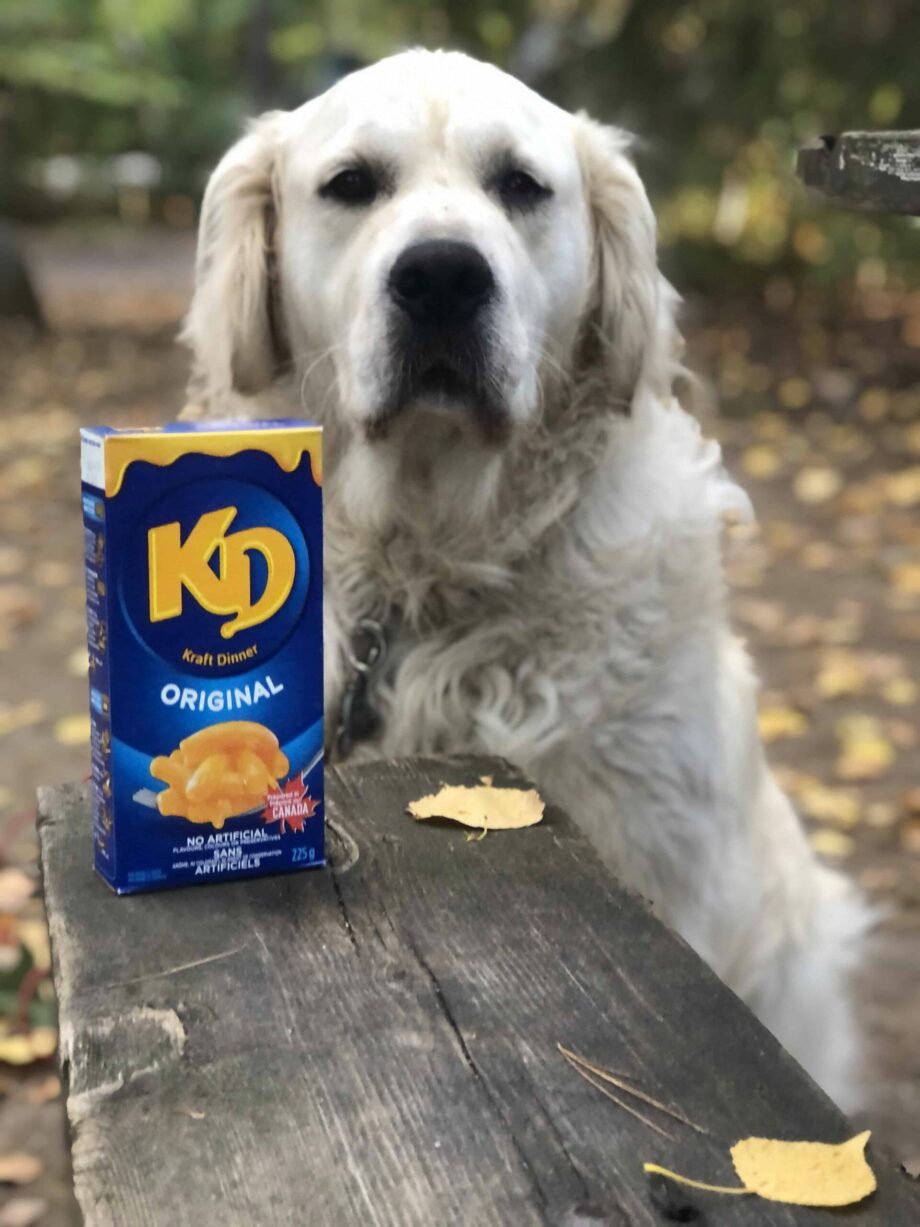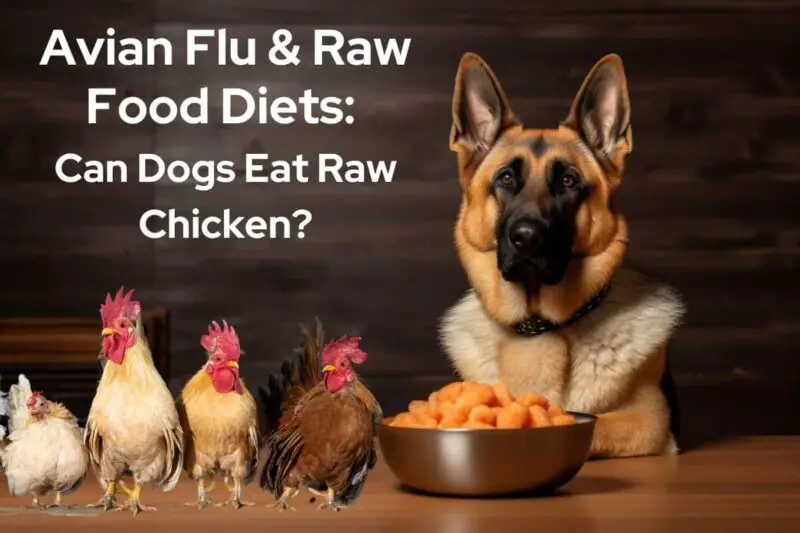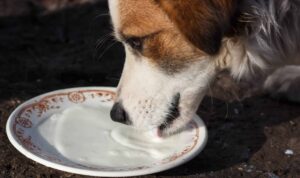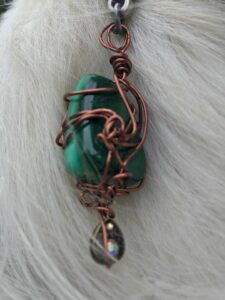Can Dogs Eat Mac and Cheese? Healthy Recipe Included
Avoid giving your dog processed, boxed macaroni and cheese meals containing wheat, dairy, salt and preservatives that can lead to chronic infections, food sensitivities, inflammation and digestive problems. Instead, make this healthy homemade Mac and Cheese recipe with rice or chick pea pasta, goat milk, organic cottage cheese and turmeric.
Macaroni and cheese is a human comfort food that some dog owners may want to share with their fur friends. However, the average mac and cheese dish has little nutritional value and can contribute to your dog’s health conditions and food sensitivities.
There are some amazing healthy options though, if you want to make this comfort food for your Fur Soul, once in a while! You can also turn this Dog-Friendly Mac n Cheese recipe into a healing meal that is especially great for dogs with arthritis and inflammation!
What’s In Mac and Cheese?
This pasta dish has carbohydrates and protein, it has little other nutritional value for dogs. In fact, macaroni and cheese becomes especially unhealthy for dogs when:
- it includes artificial ingredients, food additives, chemicals and genetically modified products
- dogs have certain health conditions that are worsened by dairy products and wheat
- it is fed often or in large quantities, contributing to food sensitivities and allergies
Let’s dig into the ingredients of two common types of mac and cheese meals:
- home made macaroni and cheese
- processed (boxed) mac and cheese
Homemade Macaroni and Cheese
Making your own comfort food? Most homemade mac and cheese recipes use the following ingredients, composed largely of wheat and dairy:
- elbow macaroni
- cheddar cheese
- Parmesan cheese
- milk
- butter
- flour
- bread crumbs or potato chips
Ready-to-Make Macaroni and Cheese
This “meal in a box” comes with noodles and a packet of powdered cheese product. It simply requires boiling water, and adding butter or margarine and milk. Some of the most popular ready-to-make Mac and cheese meals are:
- Velveeta Shells and Cheese
- Cracker Barrel Macaroni and Cheese
- Kraft Dinner Macaroni and Cheese
- Annie’s Homegrown Macaroni and Cheese
In addition to wheat and dairy, other common ingredients include: durum flour, whey, milk fat, milk protein concentrate, sodium triphosphate, iron, vitamins B1, B2, folic acid, tapioca flour, citric acid, lactic acid, sodium phosphate, calcium phosphate, paprika, turmeric, annatto, enzymes and cheese culture.
The high salt content in these processed packages can affect hydration, electrolytes and potentially contribute to seizures. Paprika, turmeric and annatto are typically used as colouring to replace artificial dyes in cheese mixes. Although turmeric is a well-researched anti-inflammatory herb that’s great for dogs, it’s place in processed food doesn’t outweigh the long list of other additives.
In 2015, under pressure from the public, the United States removed artificial food dyes (Yellow 5 and 6) which were already banned in other countries.
Annie’s Homegrown Macaroni and Cheese boosts real cream and cheese, non-genetically modified ingredients, 80% organically-sourced nutrients and no synthetic colours or preservatives. Unfortunately, Annie’s adds corn starch – a common allergen and genetically modified ingredient.
Since wheat and dairy seem to be the main ingredients in most mac and cheese meals, why should you avoid feeding these to your dog?
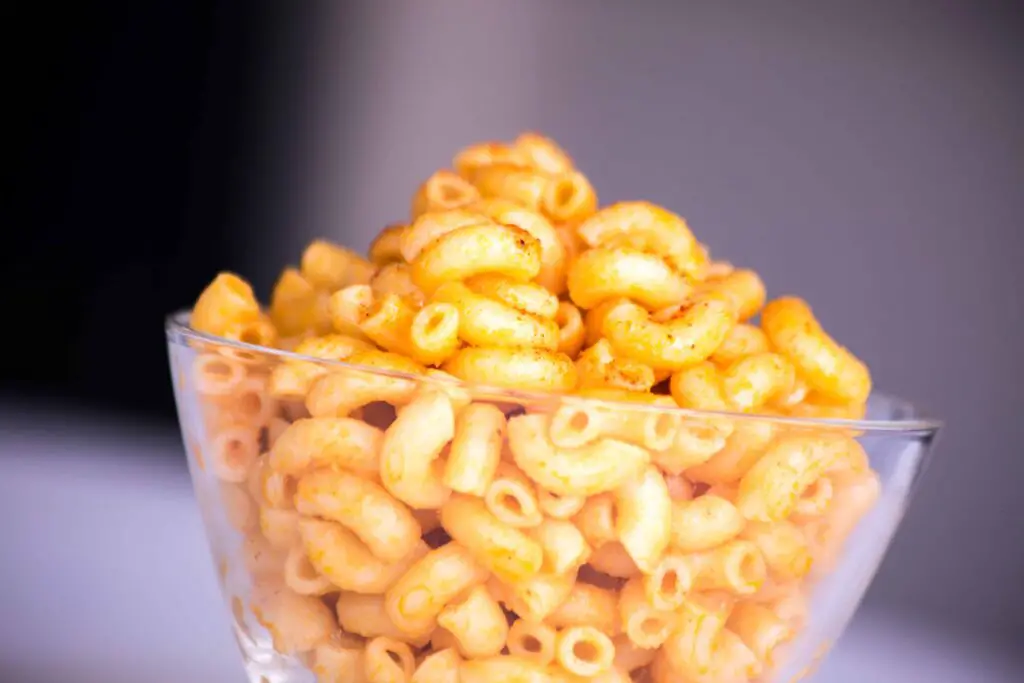
Wheat
Wheat is the most common ingredient of all types of pasta and is also used in many commercially prepared dog food products. However, wheat is not required from a nutritional perspective and, over time can lead to food sensitivities and allergies. Dogs have evolved to be able to digest grains like wheat, but that is not necessarily a good thing. Wheat crops are routinely sprayed with glyphosate (Roundup), a potent pesticide with evidence of disrupting normal digestion in people and animals, potentially leading to inflammation, leaky gut, gluten allergies, digestive issues and a variety of chronic diseases including cancer. For this reason, we don’t recommend feeding your dog any products containing wheat. There are several alternatives, including organic oats, rice and chickpeas.
Dairy
Milk is typically used in most macaroni and cheese recipes.
Lactose
Some dogs cannot tolerate the milk sugar (lactose) found in dairy milk and milk products. A lactose intolerance can cause dogs to suffer from diarrhea, gas, vomiting or stomach upset. Although it’s estimated that just over half of dogs can tolerate lactose, it’s probably best to avoid dairy milk and butter or consider healthier milk alternatives. like goat or almond milk.
Inflammation and Disease
Commercially processed cow milk products can lead to:
- skin irritation
- chronic infections
- food sensitivities
- allergies
- weight gain
Dairy is also cited as a common source of inflammation in people and animals. Sadly, dogs are suffering more and more from inflammatory conditions such as arthritis, autoimmune diseases, digestive disorders and numerous chronic illnesses. Sugar and proteins (like whey) found in dairy are one of the most common causes of inflammation and allergic reactions. Research indicates there are more than 20 proteins in milk that can cause allergies or sensitivities.
In addition, low quality dairy can contain hormones, antibiotics, genetically modified organisms and other drugs that worsen inflammation and health problems like allergies, chronic ear or skin infections.
Dogs are suffering more and more from inflammatory conditions such as arthritis, autoimmune diseases, digestive disorders and chronic illnesses.
When it comes to your dog’s health, there are several alternatives to cow’s milk, including goat’s milk. We love using goat’s milk or plant-based milk in our healing recipes for dogs! Check out our Healing Mac and Cheese for Dogs recipe below!
Genetically Modified (GM) Ingredients in Mac and Cheese
Many processed foods – including mac and cheese and many dog “food” products – contain ingredients that have been genetically modified. Corn, soy and canola crops are almost exclusively genetically modified (GM) to resist the use of high levels of toxic pesticide (like glyphosate).
Whey protein is a common ingredient in processed mac and cheese meals and is genetically modified directly, or may come from a source (like cow milk) that has been raised with genetically modified crops.
Genetically modified (GM) wheat crops are not currently approved in most countries (although that is changing with efforts by countries like Argentina, seeking to put profits over health). Several years ago, chemical giant Monsanto engineered GM wheat seeds, but withdrew their use due to public outrage. Nonetheless, GM seeds have been detected in crops around the world, with little explanation. Genetically modified crops allow for an even greater infusion of toxic pesticides – and your dog should never be exposed to that.
Why are we concerned about genetically modified products?
Genes from different food products are mixed and matched to make food more marketable, last longer, be more appealing or have a unique colour or quality. This process has risks. A harmful mistake was caught in 1996 when the gene from a Brazil nut was engineered into soy beans, resulting in allergic reactions by people with nut allergies.
Is it any wonder that we are seeing an extraordinary rise in dog allergies, skin and ear infections, inflammation and even cancer?
Most regulatory bodies do not require research on the potential long term health effects of genetically modified foods. So these products get very little research funding, yet are suspected in allergic reactions, auto-immune diseases, cancers and chronic illnesses secondary to exposure to high levels of pesticides (like glyphosate). Many processed dog foods are made from highly genetically engineered crops; is it any wonder that we are seeing an extraordinary rise in dog allergies, skin and ear infections, inflammation and even cancer?
When it comes to dairy (and meat) from cows fed a genetically modified diet, the research on health and safety on consumers remains divided and insufficient. Toxic effects have been found in GM-fed animals, but safety studies do not look at long term effects that could shed light on clinical observations such as auto-immunity, digestive diseases and allergies in humans and dogs.
An independent review by non-industry researchers endorsed that there is no scientific consensus on the safety of genetically modified ingredients in food, and reiterated the need to fund rigorous epidemiological studies.
What Types of Mac and Cheese Can My Dog Eat?
Here’s the good news! When you make your own homemade mac and cheese, it’s easier to control the type and quality of ingredients that go into it. So, home made is definitely the way to go if you’re giving your dog a little bit of this cheesy treat.
We LOVE this recipe you can make at home! Not only is it delicious and nutritious, it has healing ingredients for dogs with inflammation, digestion issues, allergies and chronic skin conditions or infections.

Healing Mac and Cheese Recipe for Dogs
Our Canine Herbalist at Healing Fur Souls has developed this comfort food recipe with healing properties, especially for dogs! A small portion of this wheat- and dairy-free mac and cheese meal is best served as a side dish with your dog’s favourite (raw or cooked) meat and diced, steamed veggies.
Here’s why this meal is healing:
- Rice or chickpea pasta avoids problems with dogs who have a wheat allergy
- Raw goat milk adds probiotics for a healthy digestive system
- Coconut oil keeps hair, fur and skin healthy with essential fatty acids
- Parsley helps with allergies and inflammation
- Cottage cheese is high in protein and is one of the healthiest types of cheese for dogs.
Hint: You can substitute with soft goat cheese or plain cream cheese. Never give your dog blue cheese. Want to know the best kind of cheese for your dog? Click here for a list of the best and worst cheeses for dogs!
Serve the appropriate amount for your dog’s size and weight.
Chester’s Mac and Cheesy Dinner
Ingredients
- 1-2 cups organic brown rice pasta (or chickpea pasta without added pea starch)
- 1/8 cup (raw) organic goat milk
- 1 tbsp coconut oil, melted
- 1/4 cup plain organic cottage cheese
- dash of dried turmeric
- 1-2 fresh parsley leafs, minced
Directions
- Boil, drain and rinse pasta
- In a separate bowl, mix together goat milk, coconut oil, cottage cheese and turmeric
- Add cooled pasta to the cheese mixture
- Sprinkle minced parsley leaves on top of the Mac and Cheese
- Get ready for lots of fur kisses because you are the BEST FUR MOMMA/PARENT EVER!
More Healing Recipes for Dogs with Health Conditions
For more healing recipes and cookies to address your dog’s special health needs, check out:
- healing salmon recipes for senior dogs and those with arthritis, inflammation or chronic infections
- healing lavender herbal dog treats for anxiety and stress
Should I Worry if my Dog Ate Mac and Cheese?
If your dog got into a prepared meal of mac and cheese, he will likely be ok. But do watch him for allergic reactions or stomach issues like diarrhea, nausea, vomiting, gas or any signs of discomfort. If he is vomiting and unable to drink fresh water, call your vet right away. Dogs with pancreatitis can become very ill if they consume high amounts of fat. Consult your vet.
Be kind to all living beings. Respect the earth we share.
References:

